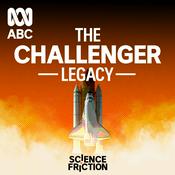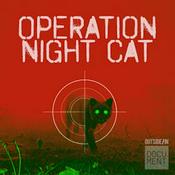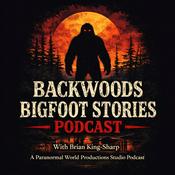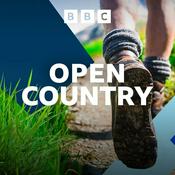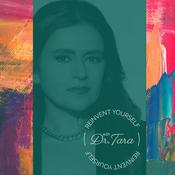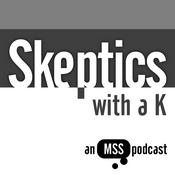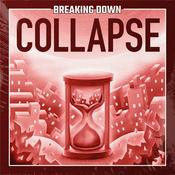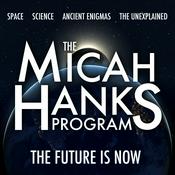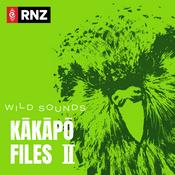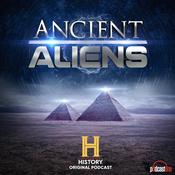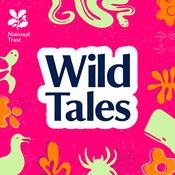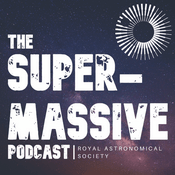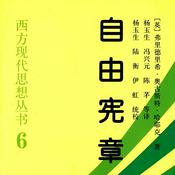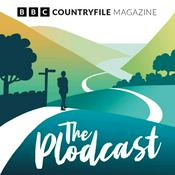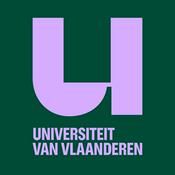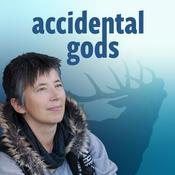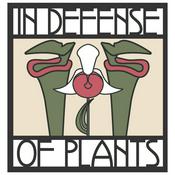147 episodes
- Jessica Lamb is the Christchurch Hub Leader for Athletes for Nature and the Sustainability Coordinator at Without Waste. Jess holds a strong connection to te taiao and is passionate about caring for both people and planet. With a background in environmental science and geography, she works to support a shift towards a circular economy and the rewilding of cities through thriving urban ngahere.
A committed nature and zero-waste advocate, Jess combines big-picture thinking with practical, community-led action. Outside of her professional roles, she is a plant-powered trail runner, avid hiker, and enthusiastic ‘compost queen’, using her love of the outdoors to inspire others to reconnect with and protect the environments they move through.
In this episode, we discuss:
Jess’s background and what sparked her passion for nature and sustainability
Her studies in environmental science and geography
New Zealand’s waste problem and why it matters
Jess’s journey into trail running and how it shapes her environmental advocacy
Her extensive volunteering background, including Forest & Bird Youth
Stepping into the role of Christchurch Hub Leader for Athletes for Nature, and why she got involved
How composting can be a practical, change-making solution at the local level
Her work as Sustainability Coordinator at Without Waste
The role of athletes as advocates for climate action and conservation
Jess’s goals for Athletes for Nature in 2026, including plans for the Christchurch hub
How trail runners (and outdoor athletes more broadly) can reduce their environmental footprint
Personal ambitions over the next few years—both athletic and sustainability-focused
To view all the links to the websites and documents, visit the show notes on our website.
Please support our work and enable us to deliver more content by buying us a coffee or becoming a member of Athletes for Nature.
Follow us on Instagram and Facebook, subscribe to this podcast, and share this episode with your friends and family. - Abby Patterson is an aspiring climate storyteller and science communicator, and our brand-new co-host on the Planet Pulse Pacific podcast!
Over the past two years, Abby has grown her Instagram platform Outdoors with Abby, where she breaks down the often tough (and sometimes overwhelming) realities of climate change and environmental science into content that’s engaging, relatable, and easy to understand.
Her postgraduate research focused on how climate science and emerging innovations can be communicated in ways that not only inform people but help them feel empowered to support meaningful change. Deeply passionate about sustainability and science communication, Abby hopes to build a career at the intersection of research, storytelling, and environmental advocacy.
She dreams of a future where endangered species are thriving, human impacts on ecosystems are minimised, and she’s proud to be part of the movement working towards that future.
Given all that, we’re absolutely pumped to welcome Abby on board as our new co-host!
In this episode, we discuss:
A season 7 check-in and what’s ahead for 2026
Welcoming our new podcast presenter, Abby Patterson
Abby’s background and studies in environmental communication
Why translating science for the wider community really matters
Outdoors with Abby and her work in environmental advocacy on social media
Battling climate doom to prevent disengagement
Her volunteering with Forest & Bird Youth and Athletes for Nature
Why solutions already exist—and how we often focus on the wrong things
Abby’s personal goals as a podcast host
The impact of positive interactions that reach the right people and spark meaningful conversations
Navigating the role of AI in communication and the power of parody when used in the right context
To view all the links to the websites and documents, visit the show notes on our website.
Please support our work and enable us to deliver more content by buying us a coffee or becoming a member of Athletes for Nature.
Follow us on Instagram and Facebook, subscribe to this podcast, and share this episode with your friends and family. - Amy Steel is a climate adaptation expert and PhD candidate with Adrift Lab at Curtin University, Western Australia. With over a decade of experience advising on decarbonisation and climate resilience, Amy is now focused on a vital question: should humans intervene to help ecosystems on the verge of collapse—and if so, how, where, and when?
Amy's research centres on the Yowli (otherwise known as Flesh-footed Shearwaters) breeding on islands in the Recherche Archipelago off Kepa Kurl, Esperance. These seabirds face increasing and worsening threats from lightning-ignited wildfires during their peak breeding season, impacted by climate change. Working with the Esperance Tjaltjraak Rangers, Amy is exploring how Wudjari cultural burning can protect these fragile habitats. Amy also reflects on moving from high-level strategy to hands-on fieldwork, the importance of Indigenous knowledge, and what it means to protect ecosystems in a rapidly changing climate.
In this episode, we discuss:
Amy’s diverse background and what led her from leadership roles in climate strategy to research
The long-term impacts of heat stroke that ended her competitive netball career and influenced her path
Joining the Adrift Lab team and what inspired her to undertake a PhD
Why islands and seabirds like the Yowli are critical indicators of ecosystem health
The increasing severity of wildfires and extreme weather, and their impacts on vulnerable species
Whether seabirds and other wildlife can adapt to human-driven climate change, and if natural checks and balances are breaking down
The ethical and ecological questions around human intervention in collapsing ecosystems
Working closely with the Esperance Tjaltjraak Rangers, and the role of Wudjari cultural burning in ecosystem resilience
The importance of place-based policy and honouring Indigenous knowledge in climate responses
How to communicate climate and conservation issues effectively, and create lasting change within communities
Staying motivated in advocacy through collaboration and community action
The role of athletes in climate conversations, and how to stay safe while being active in a changing climate
What gives Amy hope as an environmental researcher
To view all the links to the websites and documents, visit the show notes on our website.
Please support our work and enable us to deliver more content by buying us a coffee or becoming a member of Athletes for Nature.
Follow us on Instagram and Facebook, subscribe to this podcast, and share this episode with your friends and family. - Christelle Bakhache is a climber, conservationist, Lagoped ambassador, and Nature Sports Project Manager at Asters, the Conservatory of Natural Spaces in Haute-Savoie, France. With a background in environmental science and fieldwork that includes time with global organisations like WWF, Christelle brings a deep, practical understanding of conservation to her current work protecting some of France’s most fragile alpine environments.
Christelle works where outdoor adventure and environmental protection meet. She focuses on making sure that people can still enjoy the mountains without causing lasting harm to the ecosystems that make these places so special. Whether it’s shaping policy, supporting grassroots projects, or helping athletes think differently about their impact, she’s passionate about finding practical ways to balance human presence in these special and unique environments.
In this conversation, Christelle shares how her love for wild spaces fuels her mission, what she’s witnessing firsthand in the face of climate change, and how outdoor athletes and everyday adventurers alike can reduce their impact. She also reflects on her personal journey—blending exploration, advocacy, and a commitment to low-impact living to pursue a more sustainable future.
In this episode, we discuss:
Christelle’s path into conservation and her drive to protect the natural world
Life and work in Haute-Savoie, and how the region shapes her environmental outlook
Her role at Asters and their mission to safeguard mountain biodiversity
The rapid and visible impacts of climate change in the European Alps
Conservation wins, persistent challenges, and reasons for hope
The hidden environmental toll of large-scale sporting events
What genuinely low-impact outdoor events could look like
Sustainable training and travel tips for athletes and adventurers
Practical ways we can all reduce our footprint in nature
The influence of individual athletes and institutions advocating for change
Christelle’s year of travelling simply and living with intention
Steps toward becoming a more thoughtful, respectful presence in the outdoors
To view all the links to the websites and documents, visit the show notes on our website.
Please support our work and enable us to deliver more content by buying us a coffee or becoming a member of Athletes for Nature.
Follow us on Instagram and Facebook, subscribe to this podcast, and share this episode with your friends and family. - Joseph Boctor is a PhD researcher at Murdoch University’s Bioplastics Innovation Hub and a passionate advocate for sustainable environmental solutions. Originally from Egypt, Joseph’s work is driven by a personal mission to address the growing plastic pollution crisis in the Nile River and other regions where waste management and recycling systems are underdeveloped or ineffective.
At the Bioplastics Innovation Hub — a collaborative initiative between Murdoch University, CSIRO, Australia’s national science agency, and industry partners — Joseph’s research focuses on developing innovative ways to break down plastics in environments where traditional approaches fall short. With expertise in chemical sciences and biotechnology, he’s helping pioneer next-generation strategies for plastic degradation and sustainable materials.
Together with the team at the Hub, Joseph is contributing to Australia’s efforts to rethink the plastic lifecycle, to create a cleaner, more resilient future for ecosystems around the world.
In this episode, we discuss:
Joseph’s background and what sparked his passion for tackling plastic pollution
The shocking scale of plastic waste in the Nile River and its broader implications
The two sides to the plastic problem—beginning and end of life strategies
His lead authorship on the paper “Microplastics and nanoplastics: fate, transport, and governance from agricultural soil to food webs and humans”
Why micro- and nanoplastics are so concerning, and how their size makes them nearly impossible to escape
From soil to salad: How micro and nanoplastics enter agricultural soils and what that could mean for our health
The urgent need for regulation and standardised risk assessments of plastics in food webs
Packaging solutions that don’t leave a legacy: The groundbreaking work of the Bioplastics Innovation Hub
Australia’s love affair with plastic, and the alarming statistics behind our consumption
Joseph’s lead authorship on the review “Nature’s Plastic Predators: A Comprehensive and Bibliometric Review of Plastivore Insects”
The intriguing insects that can feed on plastics—and how they could revolutionise waste management
The Hub’s Smart Sprays Project and its potential to transform the agricultural industry
Practical steps we can take as consumers to reduce our plastic footprint and avoid contamination
To view all the links to the websites and documents, visit the show notes on our website.
Please support our work and enable us to deliver more content by buying us a coffee or becoming a member of Athletes for Nature.
Follow us on Instagram and Facebook, subscribe to this podcast, and share this episode with your friends and family.
More Science podcasts
Trending Science podcasts
About Planet Pulse Pacific
The climate and health crises are two of the most urgent issues of our time. Change must happen, and it needs to occur sooner rather than later.Join your hosts, Ben Eitelberg, Emma Strutt and Abby Patterson, for conversations about people and planet. Find more details at www.athletesfornature.org
Podcast websiteListen to Planet Pulse Pacific, BBC Inside Science and many other podcasts from around the world with the radio.net app
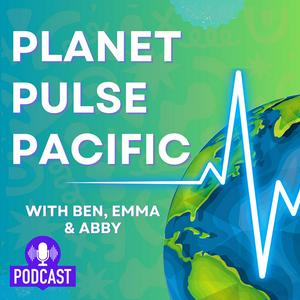
Get the free radio.net app
- Stations and podcasts to bookmark
- Stream via Wi-Fi or Bluetooth
- Supports Carplay & Android Auto
- Many other app features
Get the free radio.net app
- Stations and podcasts to bookmark
- Stream via Wi-Fi or Bluetooth
- Supports Carplay & Android Auto
- Many other app features


Planet Pulse Pacific
Scan code,
download the app,
start listening.
download the app,
start listening.





